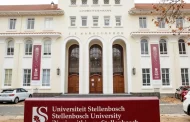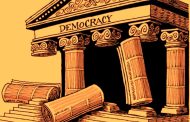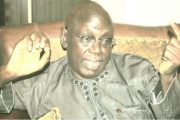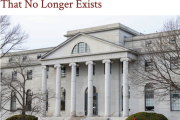Whether it was invented or mutated naturally, Coronavirus has acted as a change agent in a magnitude nobody anticipated. (Let’s quickly qualify this statement by recognising that students of Deconstruction and Materiality would be correct to argue and rightly so that they actually alerted the world, theoretically speaking, something we would explain later).

In a photo provided by his office, South Korean president, Moon Jae-in is seen here speaking with other leaders of major industrialized and developing economies during yesterday’s G-20 special teleconference summit. Ordinarily, the leaders would have flown to a chosen world capital city.
Face – face diplomacy is collapsing, with the G-20 holding its first meeting by teleconference. The wisdom that non-verbal communication, especially eye contact is too crucial to diplomatic interaction has absorbed a virtual dimension of it at a level far beyond any telediplomacy ever before. Who knows if this will not be advanced to a higher plane after the pandemic?
Intelligence, another age-old statecraft, has also taken a virtual dimension. Tracking or, broadly, surveillance which was anti-thesis of human rights and privacy has, suddenly become a welcome practice by which China, the most successful practitioner so far, has been able to track possible Covid-19 infected persons. Without that, the fight against the pandemic would have been a more horrible outcome from China, being such a vast population. In that case, the world owes God extra gratitude that the pandemic started in China and not any other tired capitalist state that would have been caught pants down in terms of capacity to deploy what would have, hitherto, been called digital authoritarianism.
Next is knowledge. Universities which hold the largest concentration of knowledge producers are experimenting with the Online alternative for knowledge transmission. As in the case of diplomacy, what happens to the conventional classroom arrangement after Coronavirus has been defeated is now a matter of speculation. Classrooms could suffer an irreversible fate, perhaps becoming an occasional feature of the knowledge transmission process.
The list can go on and on. Added to the more established domains of e-practices, (commerce, governance, banking, etc) who can say that Digital technology is not the only thing holding the world during (and after) Coronavirus? There can hardly be one answer to this though as a recent, interesting piece on what the world after Coronavirus would look like by Foreign Policy showed, (https://foreignpolicy.com/2020/03/20/world-order-after-coroanvirus-pandemic/). Each of the 12 scholars, policy and political leaders interviewed emphasised a different angle.
 Now, if what the world would look like after Coronavirus or how Digital technology is the only thing holding the world together in the event of the pandemic, then two questions are in need of answers. The first would be whether material things such as Coronavirus or animals or technological artefacts or rivers have agency or the capacity to discern and act. This is a raging (or is it settled now?) debate in Critical Geopolitics in particular. The Structure-Agent Controversy used to dominate the entire social sciences. There is some consensus in that now but not quite sure about that in the case of Critical Geopolitics where some eggheads ignited the debate. With “the Materialist turn”, the origin of the idea that the Anthropocene, for instance, has agency, to put it crudely.
Now, if what the world would look like after Coronavirus or how Digital technology is the only thing holding the world together in the event of the pandemic, then two questions are in need of answers. The first would be whether material things such as Coronavirus or animals or technological artefacts or rivers have agency or the capacity to discern and act. This is a raging (or is it settled now?) debate in Critical Geopolitics in particular. The Structure-Agent Controversy used to dominate the entire social sciences. There is some consensus in that now but not quite sure about that in the case of Critical Geopolitics where some eggheads ignited the debate. With “the Materialist turn”, the origin of the idea that the Anthropocene, for instance, has agency, to put it crudely.
The second question in need of answer is the question of how changes occur? Conservatives see this as a product of gradualism. For classical Marxists, change will come when contradictions ripe and the working class rise in revolt. Post-Marxists dismiss this and say that change has nothing to do with any pre-ordained social agents but a political process involving, in contemporary times, the articulation of antagonism into a hegemonic practice. It could be said that this question has been dominated by the Marxists since even the Post-Marxists dissidents who have questioned the Marxist viewpoint have Marxist roots and did not coin for themselves the name post-Marxism even as they have acknowledged the name tag
The emancipatory essence of critical geopolitics as the sub-discipline where Materiality debate is taking place and the Deconstruction or Post-Marxist approach means that it is correct to say that students of Deconstruction and Materiality actually alerted the world, theoretically speaking, that something other than any particular social agent could bring about change. They did not have to have mentioned Coronavirus for this claim to stand. And their works, therefore, invite everyone to quickly reflect on how the world works or might be made to work the way a particular tendency wants it to work. In other words, what is the implication of large scale Virtuality for social transformation or transformative politics?

























